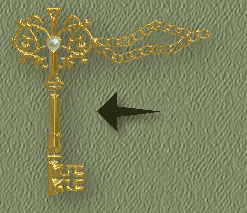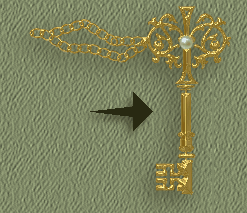

by St. Leonard-Port Maurice
Nihil Obstat and Imprimatur, 1890
TAN BOOKS
In the world you will have affliction. But take courage,
I have overcome the world.
------- JOHN 16:33

| Chapter 3: ON HEARING MASS DAILY, PART 2: FOR THE NOBILITY AND RULERS The good examples of those in high life usually move us more than the piety, however striking, of private men; the common maxim being unquestionable, Regis ad exemplum lotus componitur orbis, "every one follows the example of the king." And oh, what a long series of such examples might I not adduce to animate all to follow the footsteps of the great, and daily to hear holy Mass! We shall touch on a few in a passing way. Constantine the Great not only heard Mass every day in his palace, but whenever engaged in any enterprise, amid the din of war and the tumult of arms, he carried with him a portable altar, that the Divine sacrifice might be continually celebrated. Thus he continually achieved the most signal victories. The Emperor Lothaire constantly observed the same practice, in peace or in war daily hearing three Masses. The pious king of England, Henry III, in like manner, daily heard three Masses, his whole court assisting with the most exemplary devotion. Singulis diebus tres Missas cum nota audire volebat, et plures audire cupiens, privatim celebrantibus assidue assistebat (Matthew of Paris, His. Ang.); and therefore was he rewarded by the Lord even in things temporal, having wielded the sceptre six-and-fifty years. But, indeed, to put in evidence the piety of the English monarch, there is no need to recur to past ages; it suffices to cast our eyes on the noble soul of the most pious Queen Maria Clementina, of the exiled Stuarts, whose loss Rome has not yet ceased to deplore, and who, as she several times kindly confided to me, had placed all her pleasure in attending the Divine sacrifice, hearing, therefore, every day as many Masses as she possibly could, immovable, without cushions, without support, as if truly a statue of piety. From this attendance, so constant and so devout, there kindled in her heart a love so tenderly passionate toward Jesus in the Sacrament, that every day she would find herself present at three or four benedictions of the Most Holy, driving quickly through the streets of Rome, so as to arrive at the different churches in time. And oh, how many tears did not this good lady shed through hunger for that Bread of Angels, a hunger so vehement as to make her languish day and night, with a heart transported constantly to the object on which she had fixed her love. Yet Almighty God permitted that her urgent instances in this particular should not be heard; and this in order to render her love heroic, so as even to make her a Martyr of Divine love, for, to the best of my belief, this frustrated desire of holy Communion hastened her death, as might be evidently gathered from the last letter which, when already sinking, she wrote to me. But what is certain is that, if frequent Communion was denied to her, the want was otherwise supplied, for that loving delight which she could not indulge in sacramental Communion she found in spiritual Communion. Not only during Mass, but many times during the day, she used to repeat her spiritual Communion with the utmost joy of heart, using exactly the form prescribed in the preceding chapter. Now tell me: this ocular example, witnessed by ourselves, and admired in our own days by all Rome, does it not suffice to choke in their very throat the excuses of those who experience so great a difficulty in hearing holy Mass every day, and in making a spiritual Communion? If I cannot succeed in inducing you to imitate this good queen in giving up your whole heart to lively desires of receiving Jesus in the sacrament, yet I would fain have you imitate her in giving the labor of your hands, as she so often did, to provide poor churches with sacred furnishings-----an example given indeed in Rome by many noble ladies, who make it their recreation to work with their own hands the various sacred hangings, altar linens, and such-like, for the use and ornament of churches. And, beyond Rome, may be cited the example of a princess of the highest dignity and lineage, and of not less noble virtue, who hears several Masses every morning, and very often keeps her young ladies so employed in work for the altar as to send whole chests of corporals, purificatories, and such-like to the preachers of missions, for distribution among poor churches, so that thus the divine sacrifice may be everywhere offered up to God with becoming cleanliness, decorum, and splendor. Here I must be forgiven for saying: See here, ye princes of the world, the way to make sure of Heaven. By your leave, what are you doing-----what are you about? Why do not you open your hands, and let your liberality shine by scattering abundant alms to so many churches in such need? Do not say that the treasury is becoming empty, that imports are unproductive, and that every day the revenues diminish more and more. I shall find you a very easy way of providing for the altars of God, without prejudice to the becoming dignity of your state. Here it is, an easy one and at hand. A horse the fewer in your stables, an outrider the fewer about your carriages, a man-servant the fewer while in the country- and behold at once a large sum for aiding the necessities of many a poor parish! You summon diets, you convoke congresses, you establish public boards, you assemble councils of war to secure your provinces; yet all does not answer; while one thought, suggestive, perhaps, of some middle course, would adjust a negotiation, and that negotiation adjusted might secure a kingdom. But that thought so advantageous, whence shall it come? From God-----yes, understand me well-----from God. And what the means most efficacious for obtaining it? The holy sacrifice. Hear, then, more Masses; cause, besides, many to be celebrated; provide the altars with sacred vessels, with precious vestments and furniture-----and you will experience over you a most marvellous providence of God, which will secure your dominions, and will render you happy in time and in eternity. Let us conclude this division with the example of St. Wenceslaus, King of Bohemia, which should at least in part be imitated by all of you. This holy king did not content himself with assisting every day at several Masses, with his knees bent on the bare pavement, nor with serving in person the celebrating priests, and this with greater humility than any cleric that has only received the lowest of minor orders; but besides this, he contributed to the sacred altars the richest jewels of his treasury, and webs of texture and embroidery the most precious in the royal wardrobes. He was, further, in the habit of making with his own hands the altar-bread which was to be used for the holy sacrifice; and with this view, without any regard to the royal dignity, he applied those hands, born to wield the sceptre, in cultivating a field, in directing the plough, in sowing the seed, and in reaping the harvest. Then he ground the grain, separated the finer flour for the oven, and made the breads which should afterward be Consecrated; and these he presented, with the lowliest reverence, to the priests, to be converted into the most Divine Body of the Saviour. O hands worthy to have held the sceptre of this globe! And did other kings despise him for this? Far from it. Almighty God led the Emperor Otho I to conceive for this holy king an unparalleled regard, so far as to grant him the right to quarter in his arms the imperial device (an eagle sable in an argent field), a favor not extended to any other prince. Thus God, by means of the emperor, rewarded with temporal honors the great devotion of Wenceslaus toward the Divine sacrifice. But much more was he rewarded by the King of Heaven when, by means of a most glorious Martyrdom, there was granted to him a crown of eternal glory: and thus we behold him, through his passionate tenderness for holy Mass, doubly crowned, in this and in the other world. Reflect and resolve. BACK TO THE TOP OF THE PAGE |

 Contact
Us
Contact
Us

HOME-------------BLESSED SACRAMENT VISITS
www.catholictradition.org/Eucharist/hidden-treasure3b.htm